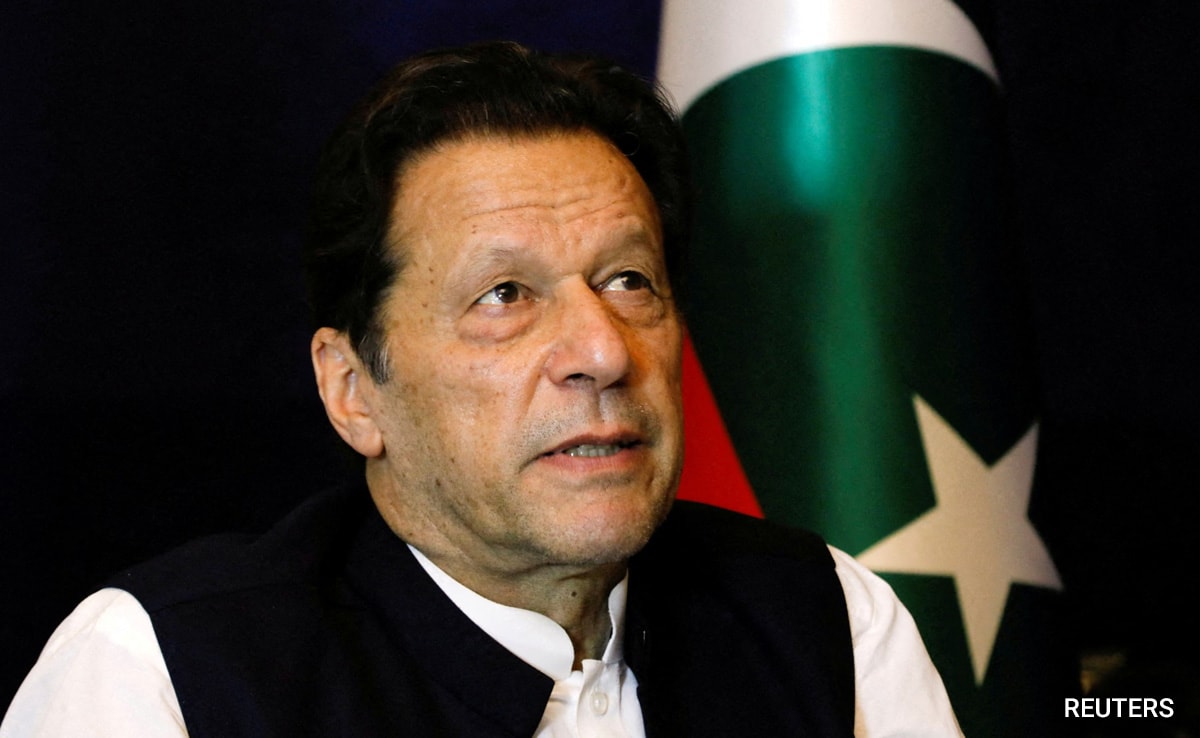
In a development that reverberates across Pakistan’s political landscape, former Prime Minister Imran Khan has been arrested at his Lahore residence. The arrest follows a significant legal verdict that found Khan guilty in the Toshakhana corruption case, resulting in a three-year prison sentence and the potential implications of being barred from political participation.
The Toshakhana corruption case hinges on allegations of Khan’s involvement in profiting from the sale of expensive state gifts during his tenure in power. The trial court’s verdict, delivered by Additional Judge Humayun Dilawar of the Islamabad-based district and sessions judge, carries not only a three-year prison sentence but also a Rs100,000 fine.
A Controversial Verdict: Impact on Political Future
The verdict’s significance extends beyond the confinement of Khan’s residence to the broader realm of Pakistani politics. The three-year prison sentence and the accompanying fine underscore the severity of the allegations and the legal repercussions that have ensued. Khan’s potential six-month imprisonment in case of non-payment of the fine further intensifies the gravity of the situation.
Moreover, the verdict’s implications could potentially reshape the political trajectory of Khan’s career. The possibility of being “barred from politics” raises pertinent questions about the future of his political engagement and the influence he might wield in shaping the nation’s policies.
A Chapter in Khan’s Journey: Legal Consequences and Political Landscape
Imran Khan’s arrest and subsequent sentencing mark a poignant chapter in his journey from a cricketing icon to a political leader. The Toshakhana corruption case underscores the challenges that public figures face, particularly when allegations of impropriety and corruption come to the fore.
As the former Prime Minister navigates this juncture, he confronts not only the legal ramifications of the verdict but also the potential ramifications for his political legacy. The outcome of this case carries implications that ripple through both the legal and political spheres of Pakistan.
Justice Served: A Message of Accountability
The verdict in the Toshakhana corruption case underscores the principle of “accountability” that underpins a just and democratic society. Regardless of one’s stature, the pursuit of justice remains an essential tenet. The legal process’s impartiality and the court’s decision are emblematic of the commitment to upholding the rule of law.
The case serves as a reminder that no individual is beyond the scope of legal scrutiny. The proceedings illustrate that “transparency” and “fairness” are indispensable elements in the quest for a just society, where accountability is a cornerstone.
A Nation’s Watchful Eye: Observing the Unfolding Narrative
In conclusion, Imran Khan’s arrest and subsequent three-year prison sentence signify a significant moment in Pakistan’s socio-political narrative. The verdict’s impact, spanning from legal consequences to potential political transformations, underscores the intricate interplay between law, governance, and public perception.
As the nation watches the unfolding events, the Toshakhana corruption case underscores the importance of “checks and balances” that ensure that those entrusted with power remain accountable to the principles that underlie a democratic society. The outcome reverberates as a testament to the resilience of institutions and the nation’s collective commitment to justice.









